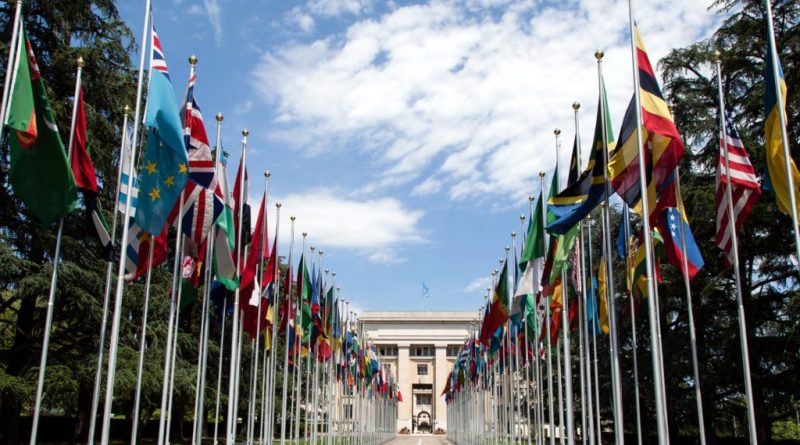Developed Nations have a Responsibility to Provide Climate Aid
Cat Anderson
Staff Writer
The UN’s annual climate summit, COP27, began on November 6, and after decades of climate debate, the agenda will finally include discussion of whether developed nations should pay “loss and damages” to developing nations, according to Reuters. According to BBC News, loss and damages is one of three primary types of climate funding for developing countries. The other types are mitigation, which is intended to “help developing nations move away from fossil fuels and other polluting activities,” and adaptation, which focuses on helping developing nations “prepare for the worst effects of climate change.” Loss and damages, on the other hand, would be paid by developed nations to help developing nations address the current consequences of climate change. However, this type of funding is much more controversial than the other two.
Developed countries have resisted conversations around loss and damages for a number of reasons. According to The New York Times, many developed nations are worried that the act of directly compensating poorer countries for current climate-related disasters could become a never-ending liability. Developing nations argue that they too are facing irreversible damages from a crisis that they not only did not cause, but for which developed nations can be directly blamed. All evidence seems to support the claims of developing nations that much of the responsibility lies on developed countries.
Pakistan, for example, has been experiencing severe flooding since June that has killed over 1,700 people and left a third of the country underwater, The New York Times continues. Countries like Pakistan are not only dealing with devastating natural disasters, but they have also been stuck with a disproportionate financial burden. As NPR explains, to this point, most climate funding has been given to developing nations in the form of loans, which many people argue only increases the burden of debt on governments that already struggle financially.
To make matters worse, many countries, including the United States, have already failed to deliver on previous financial promises. NPR writes that in 2009, a group of developed nations promised to provide developing nations with $100 billion of aid per year by 2020, but that promise was never fulfilled. The New York Times adds that the United States in particular has struggled to meet promises of climate financing. Last year, Senate Democrats tried to secure $3.1 billion, but because of opposition by Republicans, they were only able to secure $1 billion.
The United States, however, is not the only nation that has failed to deliver on its promises. Bloomberg reports that China, which is the world’s largest carbon emitter, completely stopped climate negotiations with the U.S. in August following Nancy Pelosi’s visit to Taiwan. Chinese President Xi Jinping refused to answer questions regarding whether he’d be willing to resume talks with the U.S. during COP27.
It is imperative that the U.S. and China swallow their pride, stop arguing, and work together to find a solution to this problem. They are, of course, not the only nations at fault; the entire developed world has created a crisis, made it worse, and forked the financial burden onto developing nations. Many developing nations are reliant on fossil fuels, and they do not have the financial means to shift their economies to more sustainable industries. Current “aid” only increases their financial burdens.
Leaders of developing countries are frustrated. According to NPR, Barbadian Prime Minister, Mia Amor Mottley, said “We have incurred debts for COVID-19…for climate, and we have incurred debts now in order to fight…the inflationary crisis and with the absence of certainty of supply of goods.” Developed nations like the United States are worried about the financial burden, and, as BBC News states, they consider paying these damages to be a concession to their responsibility for climate change. There is merit to the idea that this is an economic risk for developed countries, but money is no longer the most important thing at stake. Developing nations do not have the privilege to worry about “taking responsibility.” For them, survival is at stake, and before long, even wealthy nations will be forced to reckon with that fact. Developed countries can continue to hoard their wealth, but they cannot continue to run from the consequences indefinitely. People are going to continue to die in natural disasters, and at some point, they will catch up with the developed world. These nations must ask themselves what good their money does them if there is nobody left to spend it on.
Image Courtesy of Tom Page


